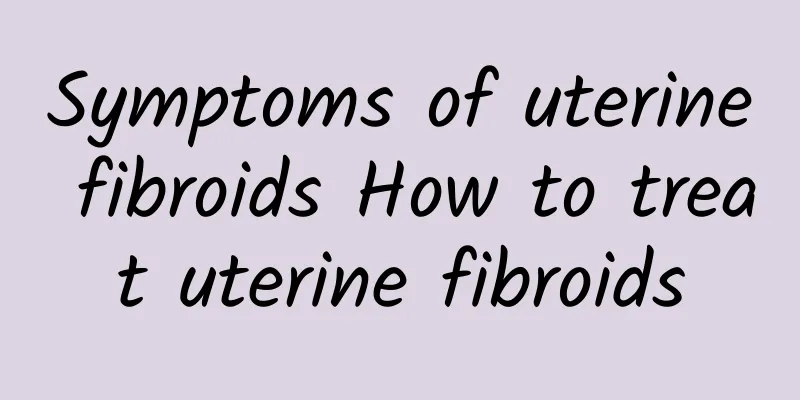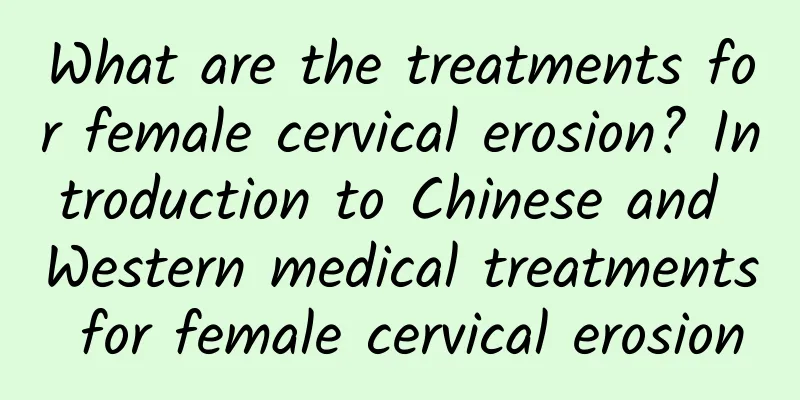Is pelvic peritonitis hereditary?

|
Pelvic peritonitis is a common gynecological disease in women. If it is not treated in time, it will cause great harm to women. Therefore, we should find the cause of pelvic peritonitis, go to a regular hospital, and actively treat it. Many patients are worried that this disease will be passed on to their children. Is pelvic peritonitis hereditary? Let's find out together. Pelvic peritonitis is not hereditary. Pelvic peritonitis can be caused by infection with exogenous pathogens and endogenous pathogens. It can be caused by lower reproductive tract infection, infection after intrauterine surgery, poor sexual hygiene between couples, direct spread of inflammation of adjacent organs, and recurrence of acute pelvic peritonitis. 1. Age According to data, the high-risk age for pelvic peritonitis is 15-25 years old. The susceptibility of young women to pelvic peritonitis may be related to frequent sexual activity, cervical columnar epithelium ectopia, and poor mechanical defense function of cervical mucus. 2. Married lifePelvic peritonitis often occurs in women who are in the active period of sexual life, especially those who are young at the first time, have multiple partners, have sex too frequently, or whose partners have transmissible diseases. 3. Lower genital tract infection Lower genital tract infections such as gonorrheal Neisseria cervicitis, chlamydial cervicitis, and bacterial vaginosis are closely related to the occurrence of pelvic peritonitis. 4. Infection after intrauterine surgery Such as curettage, hydrotubation, hysterosalpingography, hysteroscopy, etc., due to surgical damage, bleeding, and necrosis of the reproductive tract mucosa, leading to ascending infection of endogenous pathogens in the lower reproductive tract. 5. Poor sexual hygiene between husband and wife Having sex during menstruation and using unclean menstrual pads are likely to allow pathogens to invade and cause inflammation and disease. In addition, low-income groups do not pay attention to the health care of sex life, and the incidence of pelvic peritonitis is high in those who do vaginal douching. 6. Direct spread of inflammation to adjacent organs If appendicitis, peritonitis, etc. spread to the pelvic cavity, the pathogen is mainly Escherichia coli. 7. Recurrent acute attack of pelvic peritonitis Pelvic peritonitis can cause extensive pelvic adhesions, fallopian tube damage, and decreased fallopian tube defense capabilities, which can easily lead to reinfection and acute attacks. Through the above introduction to the causes of pelvic peritonitis, I believe everyone has a better understanding of how pelvic peritonitis is caused. Pelvic peritonitis is not hereditary, but there are many dangers of suffering from pelvic peritonitis. If female friends want to avoid the occurrence of the disease, they must actively do preventive work. |
<<: Ways to prevent recurrence of pelvic peritonitis include
>>: How is pelvic peritonitis transmitted?
Recommend
Specific causes of cervical precancerous lesions
There are many reasons for cervical precancerous ...
How big is the uterine fibroid and how long does it take to remove it surgically?
Generally, surgery is recommended when the diamet...
Chronic cervicitis and life expectancy: the importance of proper treatment and care
I often worry about the impact of chronic cervici...
What is ovulation bleeding?
Ovulation bleeding is a common physiological phen...
How long does it take for women with cervicitis to have sex? Patients with cervicitis should pay attention to these before having sex.
Cervicitis is a common gynecological disease. Whe...
What causes chronic adnexitis?
How is chronic adnexitis caused? Chronic adnexiti...
Long-term dietary structure is related to the cause of ovarian cysts
Most ovarian cysts are benign tumors. The causes ...
How to avoid ectopic pregnancy?
According to a survey, the incidence of ectopic p...
What nutrients are needed in the diet for threatened abortion
We are all familiar with threatened abortion. If ...
Lose weight easily! To beat the muscles, first train the triceps
Pop diva Jolin Tsai often shows off her strong ar...
Ovulation bleeding, menstruation delayed for ten days, what's going on?
Ovulation bleeding and menstruation delayed for t...
What are the causes of cervicitis?
Cervicitis is a common gynecological disease, whi...
Let you learn more about the symptoms of severe cervical erosion
Cervical erosion is one of the common gynecologic...
How long does it take to detect an ectopic pregnancy? Usually about 40 days
Once a female friend has an ectopic pregnancy, it...
Vulvar skin discoloration alert female vulvar leukoplakia
Female vulvar leukoplakia is a stubborn and diffi...









